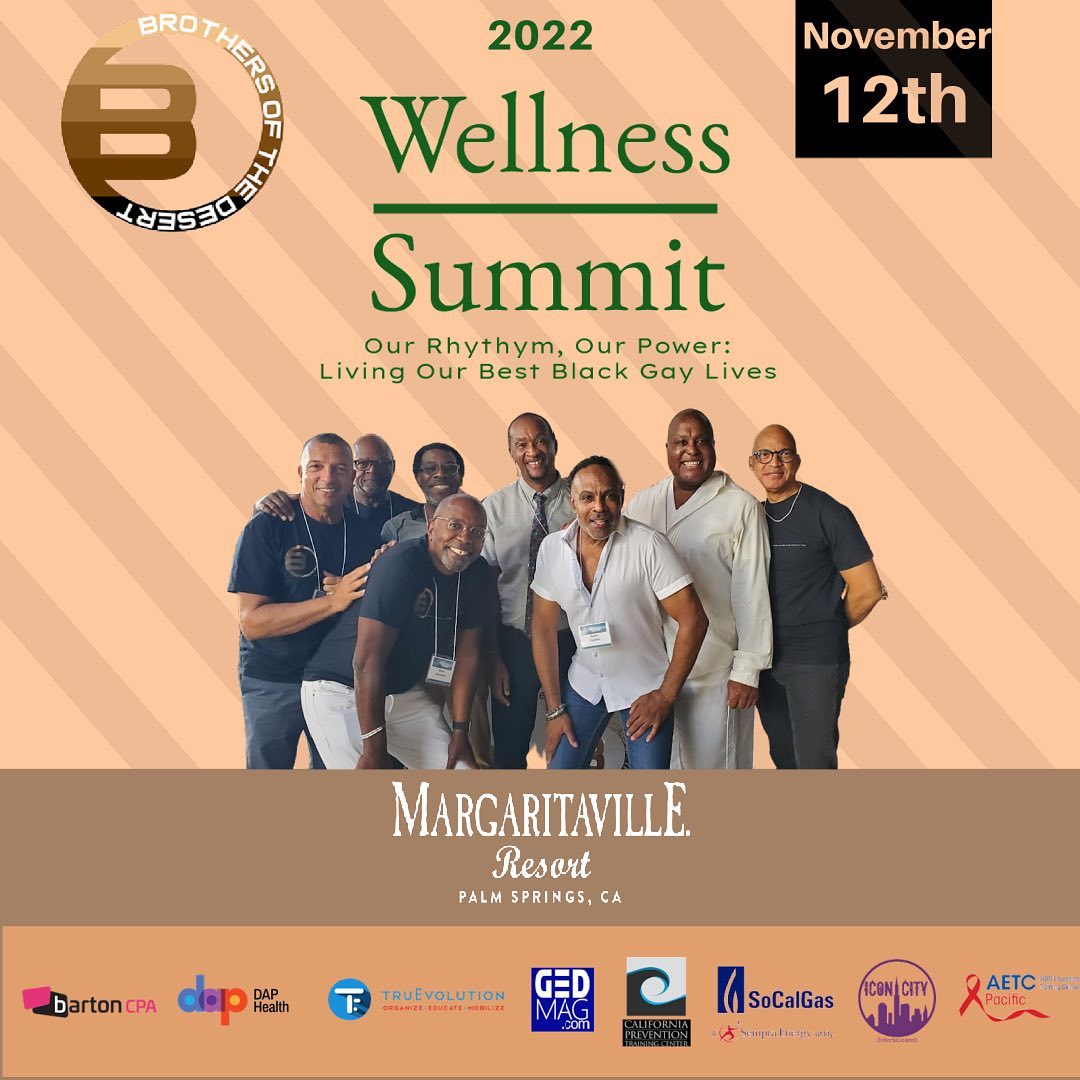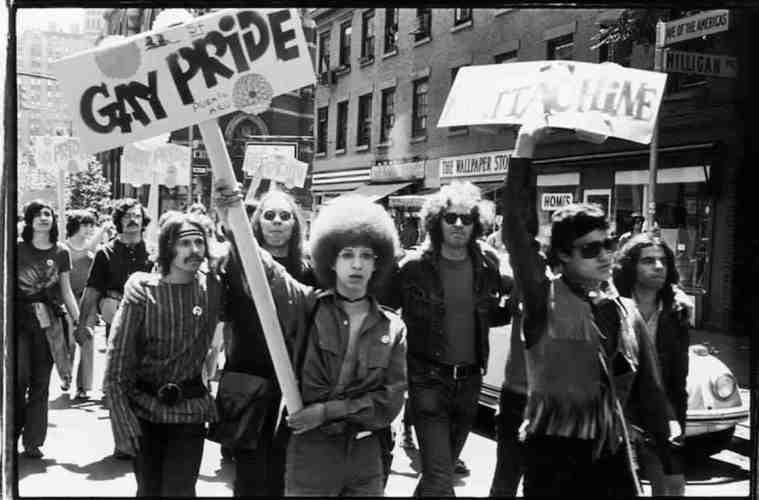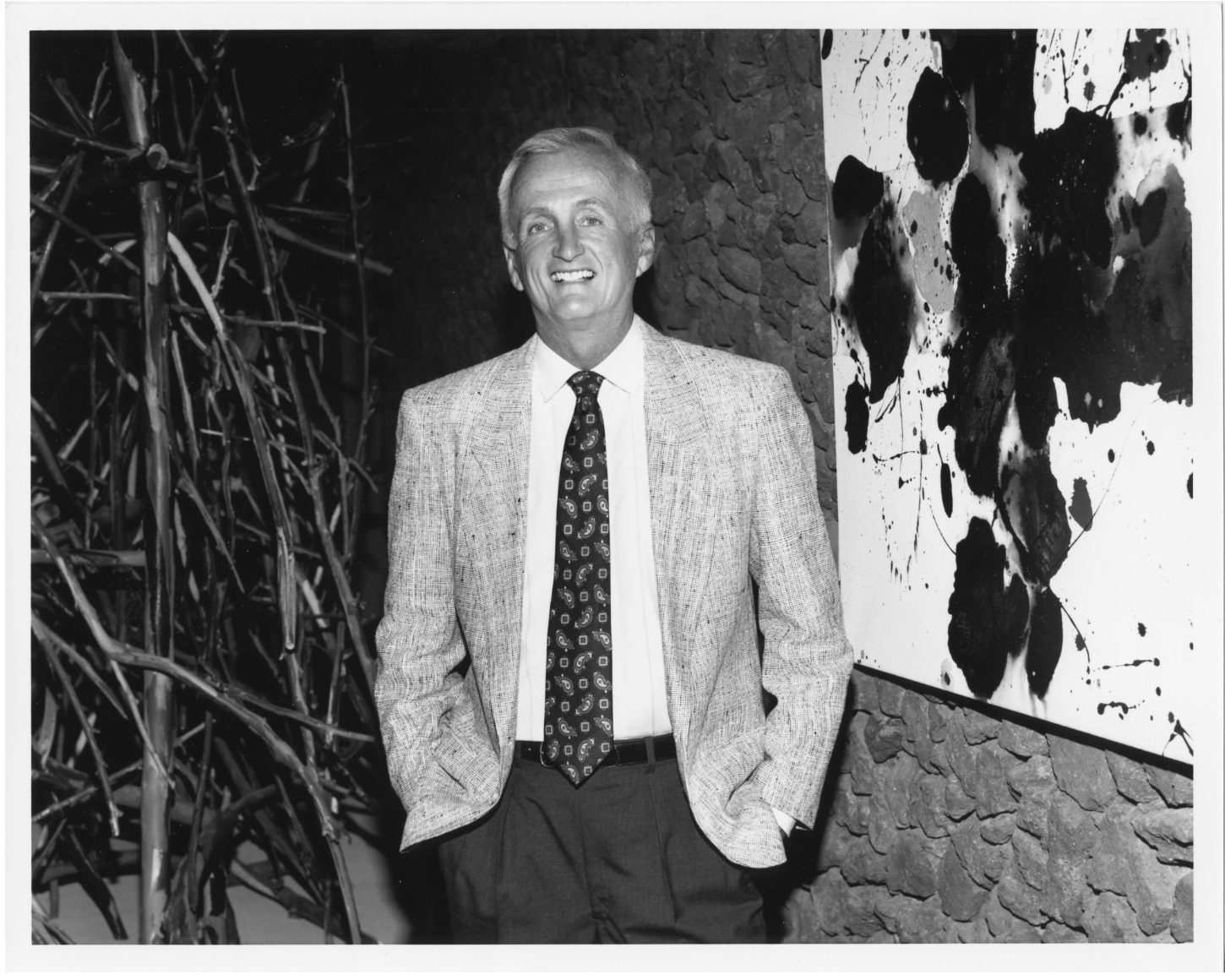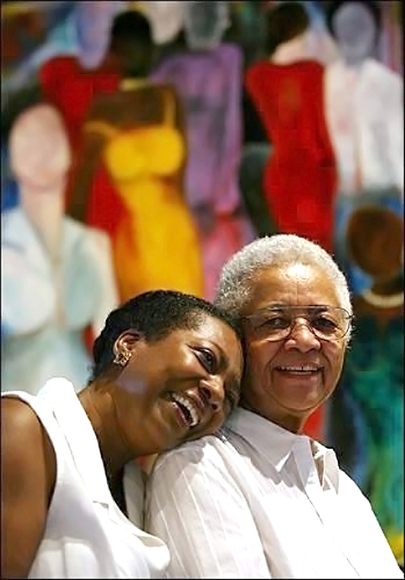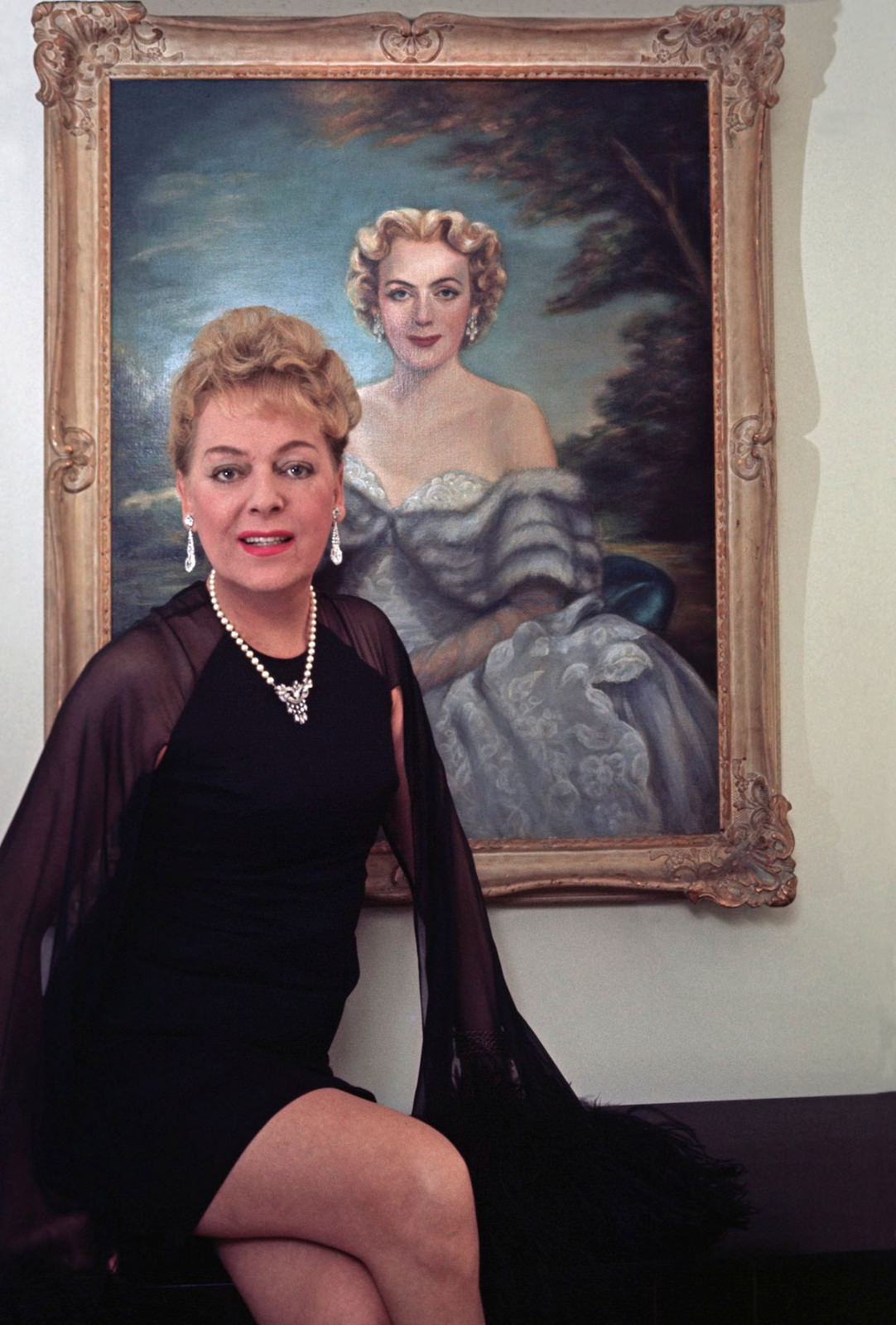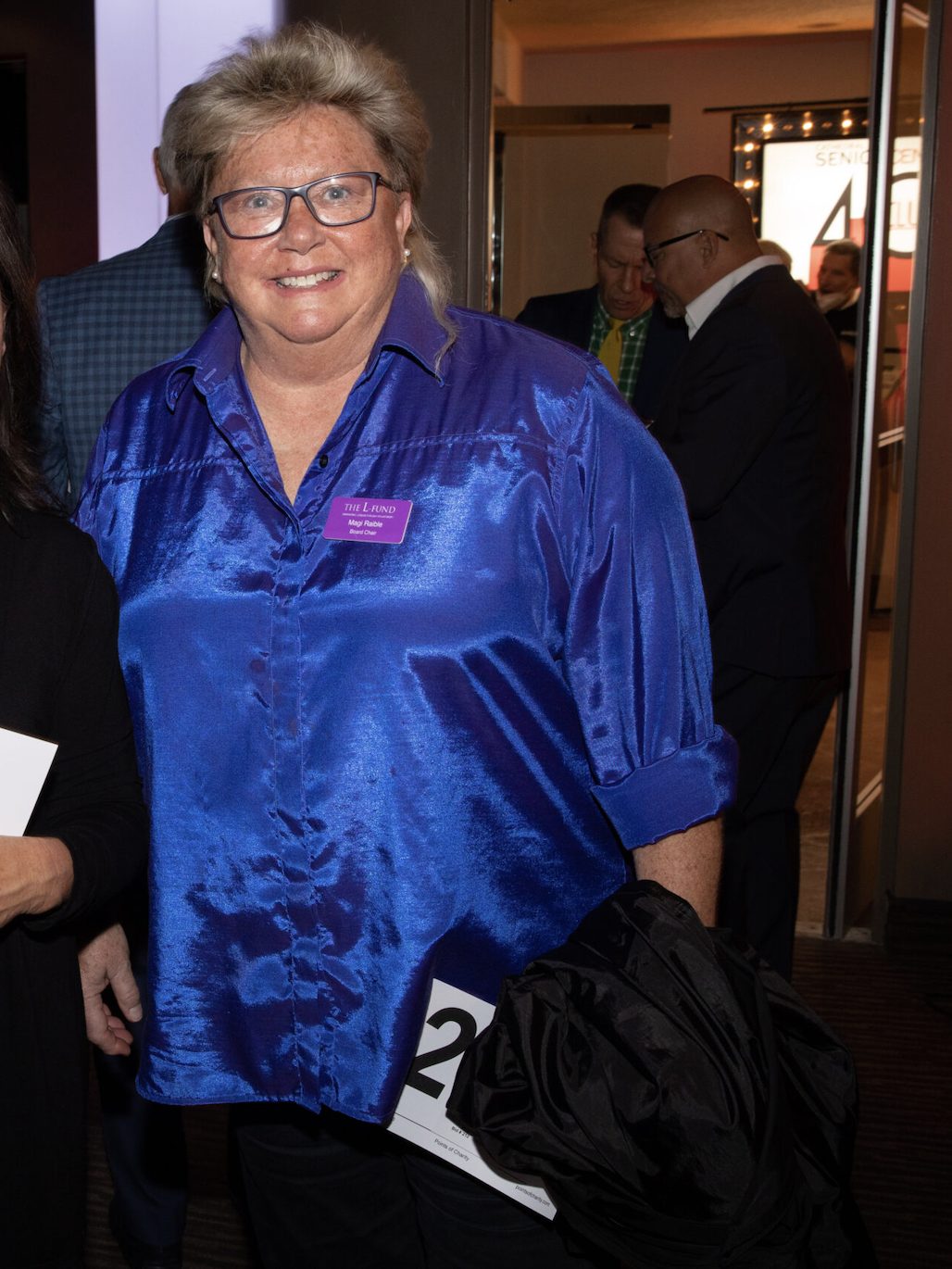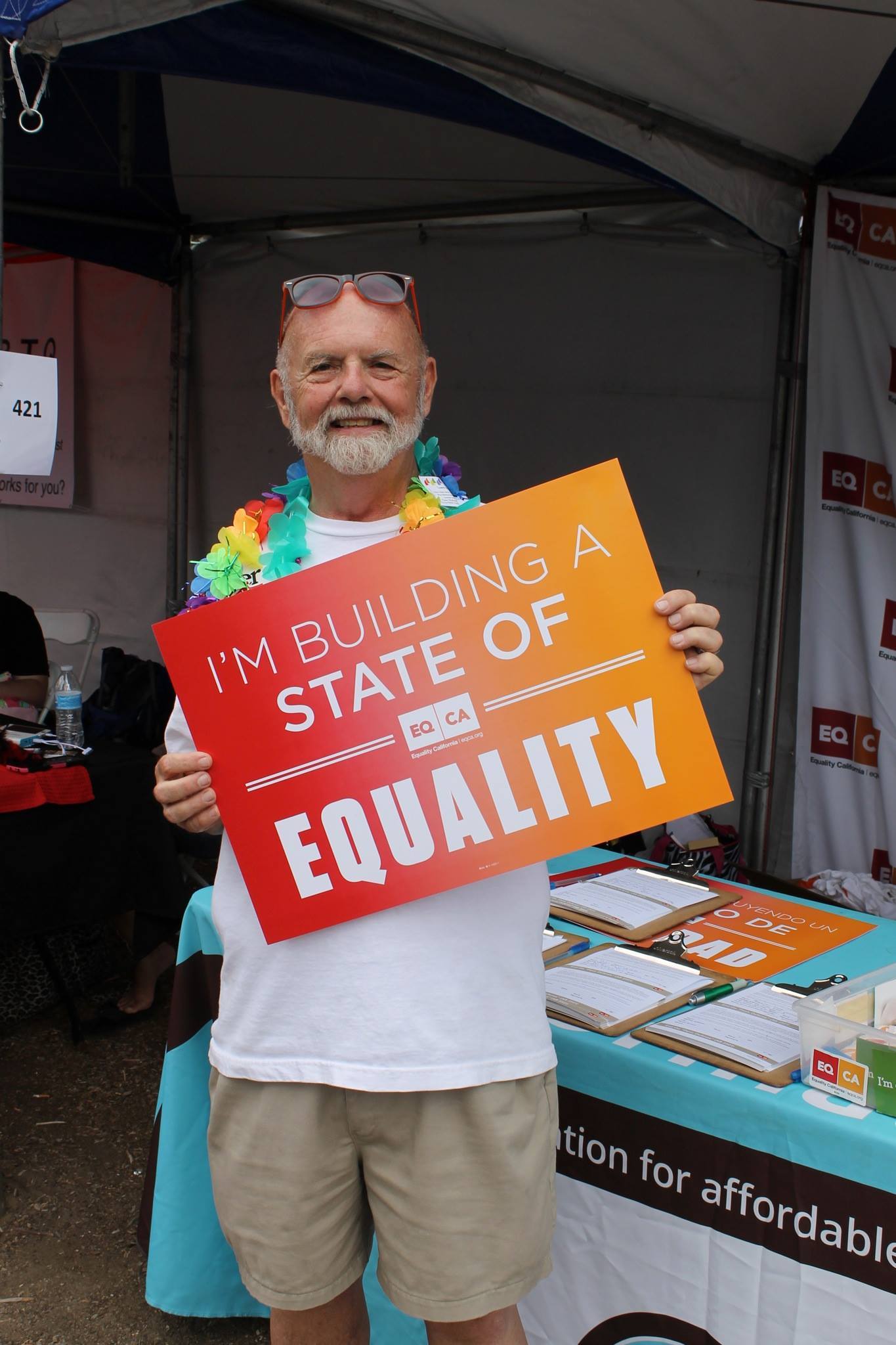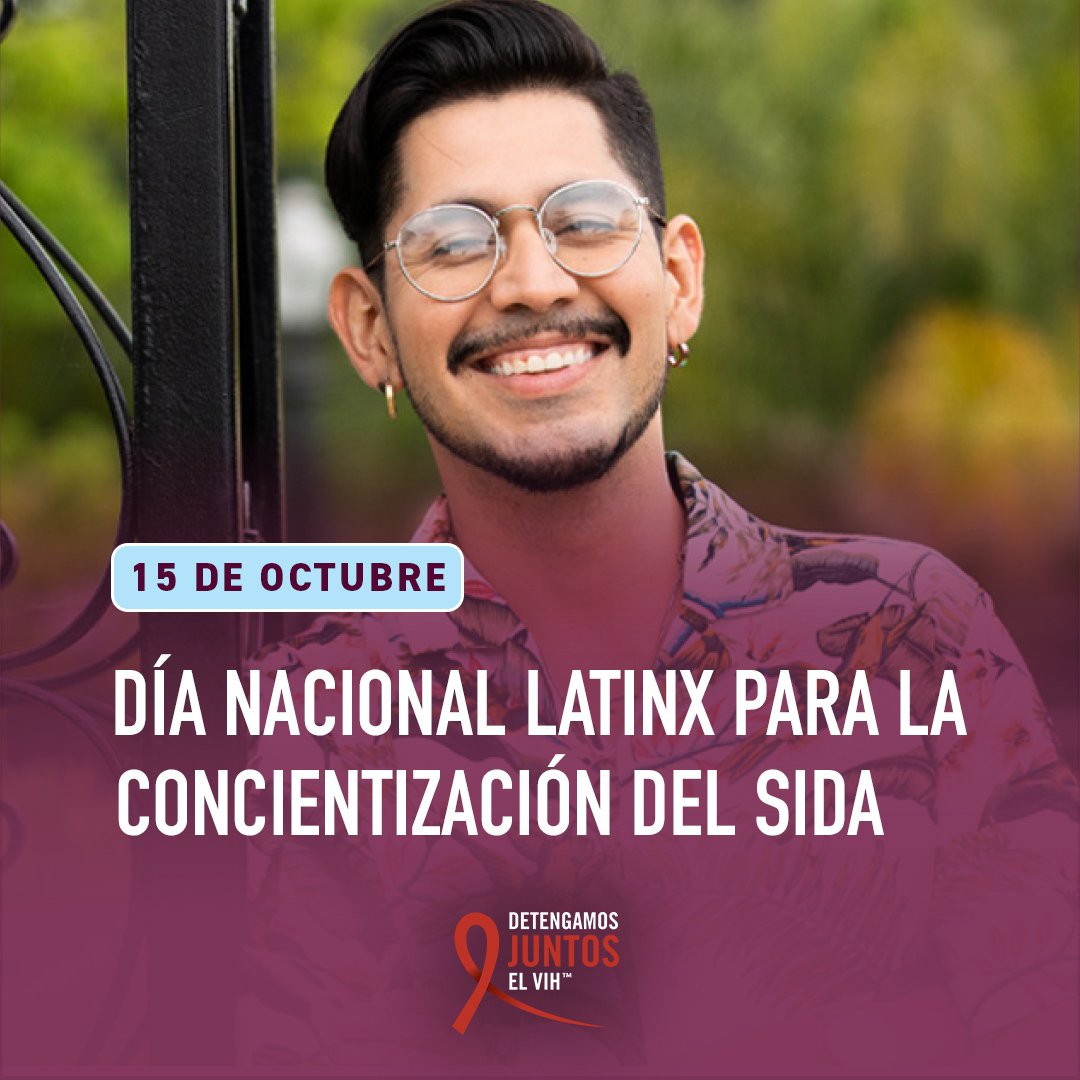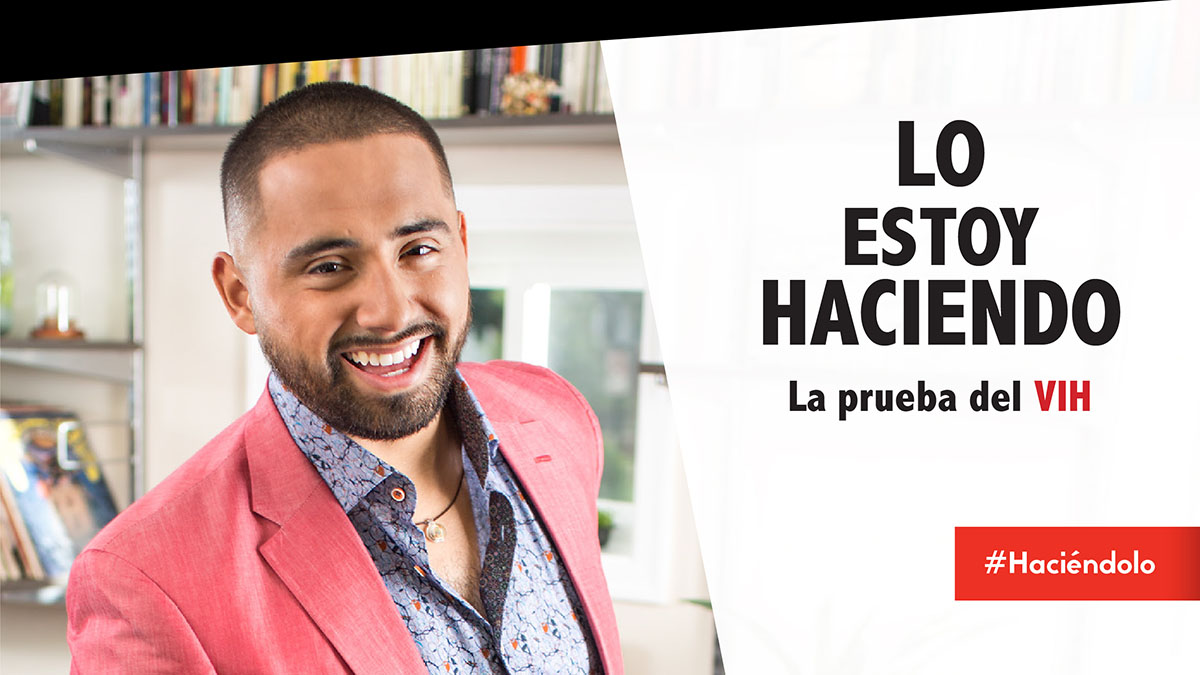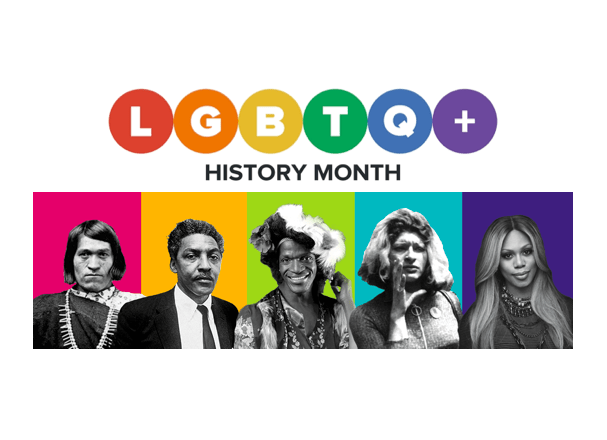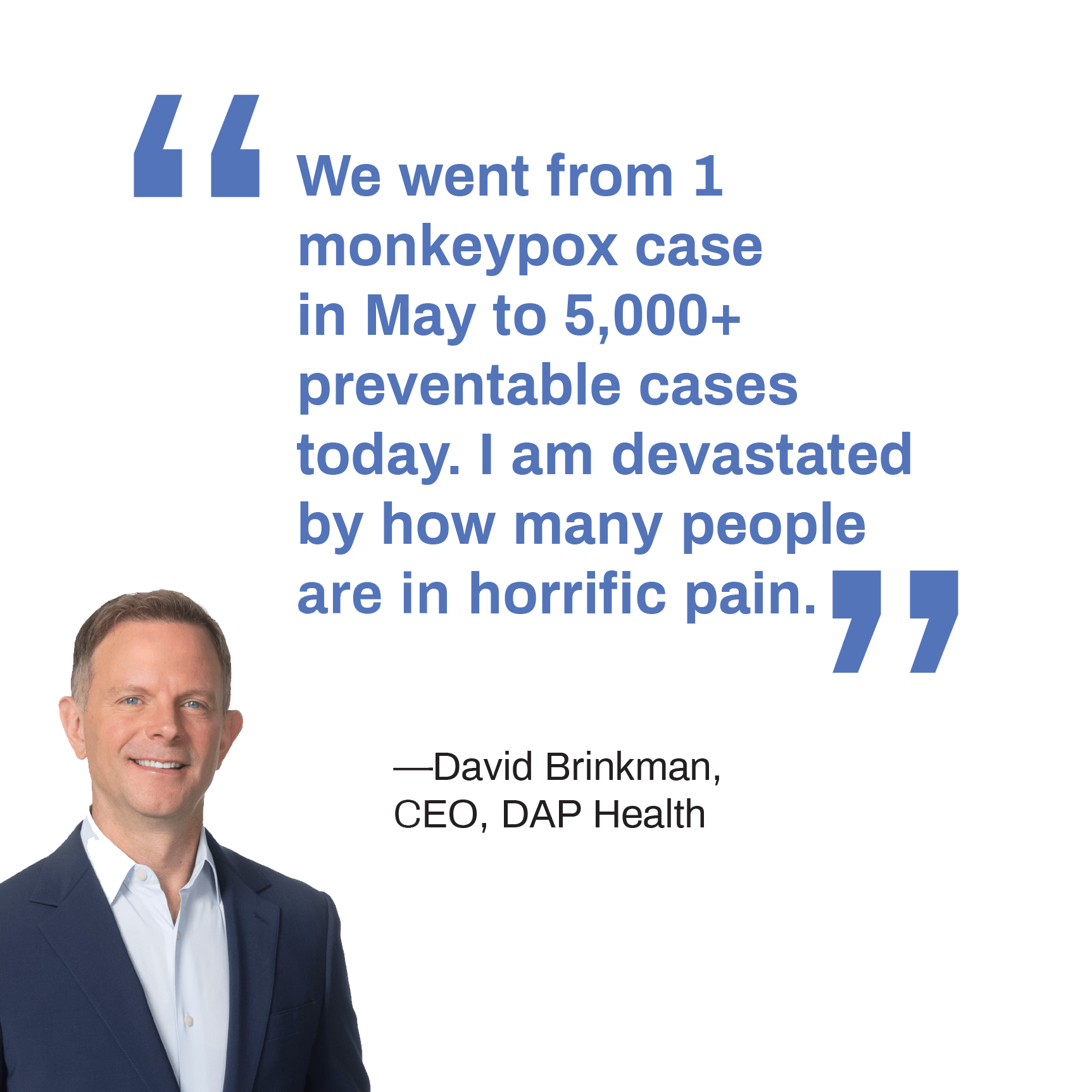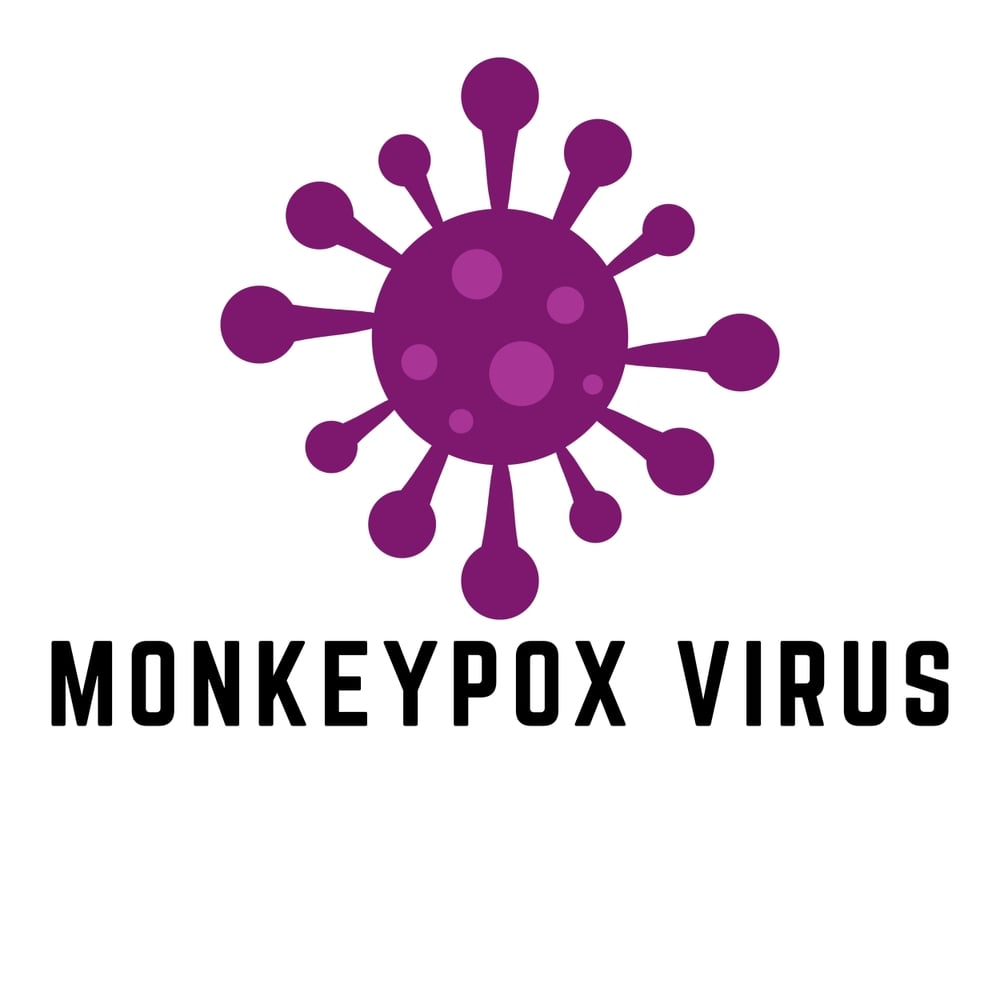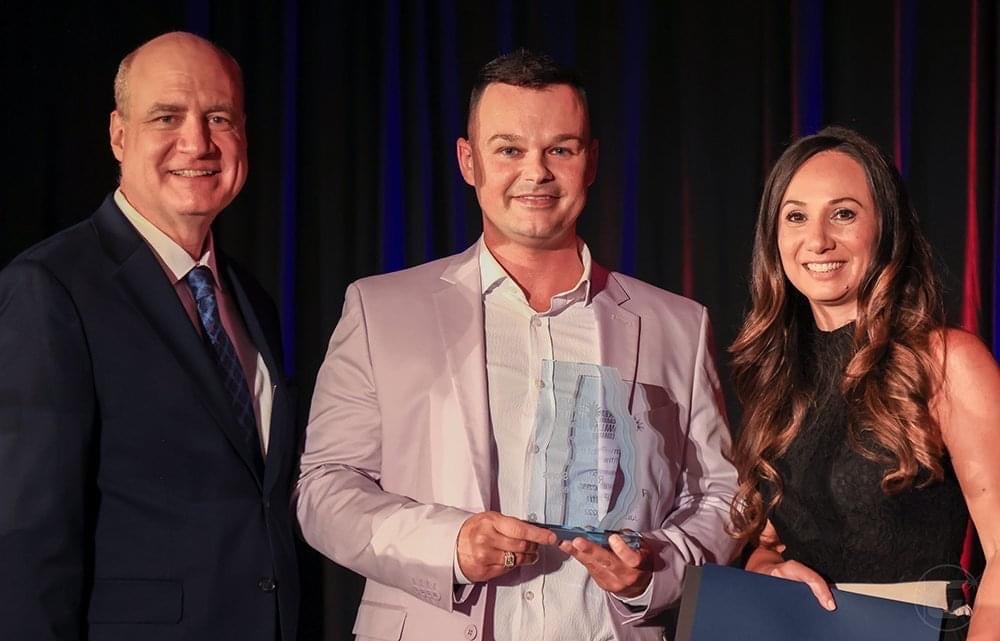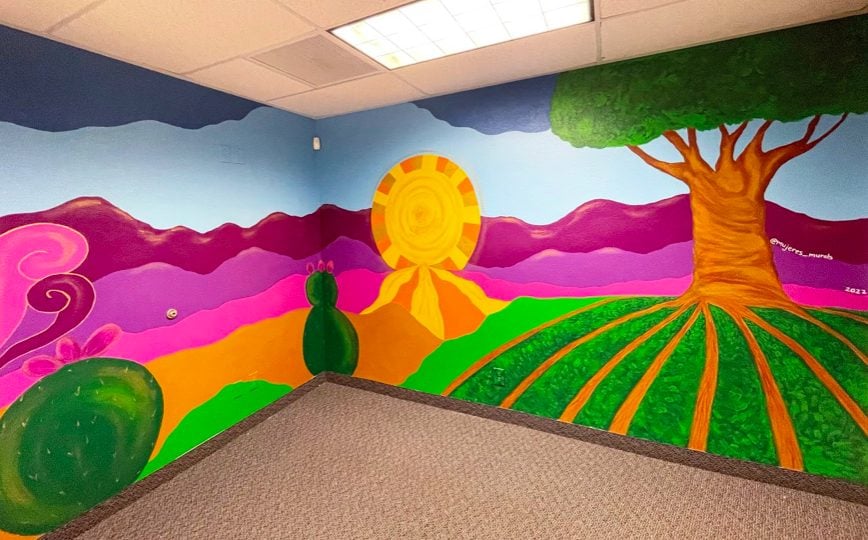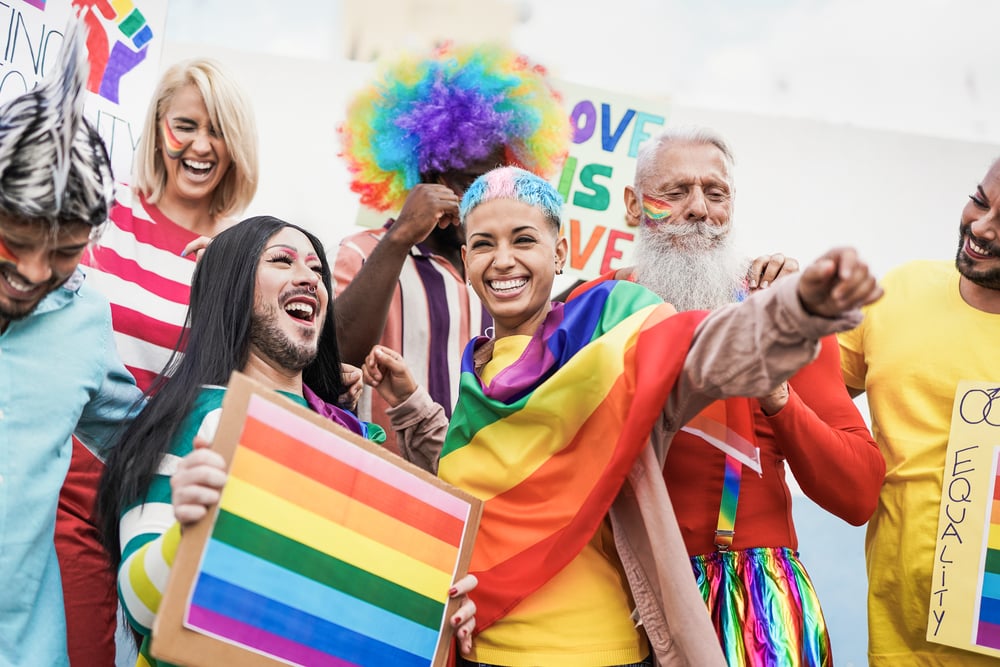
Speed Friending, Sexual Health, Recovery and More: DAP Health is Bringing it to Palm Springs Pride
Words by Charles Sanchez
Palm Springs Pride has a long, fabulous tradition of celebrating diversity and community, and this year, DAP Health’s Pride Pavilion will be right in the heart of it. The pavilion will be located at 205 S. Palm Canyon Drive at the intersection of Palm Canyon and Arenas Drive, and will be open Friday, November 4 at 11:00 am through Sunday, November 6 at 5:00 pm.
To foster connection and camaraderie this year, DAP Health has engaged the talents of Palm Springs’ own, the glamorous Ms. Patty Cakes to host a little get together game at Pride she likes to call “Speed Friending.” The game will commence at 5pm on Friday, November 4th, just in time to get you ready for a fabulous and friendly weekend.
“Like speed dating,” Patty said, “it’s about meeting someone briefly for a minute, maybe two minutes, and then moving on to the next person.” It’s Patty’s hope that people from different cliques in the community will break down barriers and form new connections. “There’s all these little subsets within our community,” she said. “That’s what I love about pride; we get to be with each other together.”
But why speed friending? “Dating is a charged word that comes with a lot of bias and baggage,” Patty explained. “But after all, in one way or another we are ‘dating’ everyone in our lives: our barista, the checkout girl, hell I’m even dating my new puppy!” She went on to say when the word dating is unweaponized, it simply means being in a relationship with those around us. “And by that definition,” she said, “during pride weekend, we are all dating each other!”
Speed Friending is only one little nugget of deliciousness that DAP Health will be providing. The Pride Pavilion will offer a little something for everyone: yoga, recovery meetings, Raw sex talk, country line dancing, sound bath meditation and more.
Steven Henke, Director of Brand Marketing for DAP Health said, “The Health Pavilion is going to offer the gift of wellness, free, exactly where our community is that weekend.” People will be able to walk into the pavilion and see exactly who DAP Health is and what is offered. They’ll experience the community health team’s approach to sexual wellness and harm reduction for every section of the LGBTQ+ family.
“They’ll also be able to see the other non-profits that we partner with that we are inviting into the space,” Henke said, “like Planned Parenthood, Brothers of the Desert, the L Fund, and the LGBTQ Center of the Desert.” Riverside County will also be there, providing Monkeypox vaccinations on site.
“I would like to invite everyone to stop by the Pavilion,” Patty Cakes said, “because Pride has a party aspect and a social aspect, but there’s also the opportunity to learn safe sex, health, mental health.” She concluded, “I want to interject that energy--learning and living--into my best gay life!”









